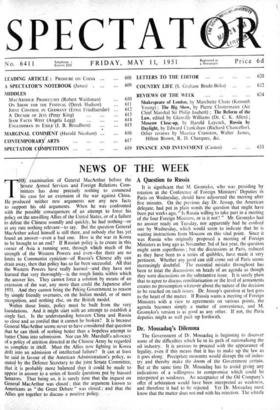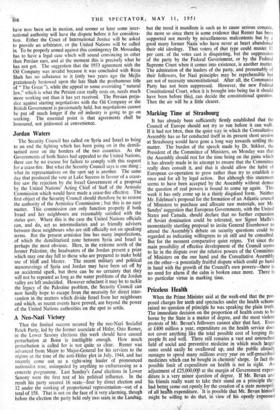Dr. Mossadaq's Dilemma
The Government of Dr. Mossadaq is beginning to discover some of the difficulties which lie in its path of nationalising the oil industry. It is anxious to proceed with the appearance of legality, even if this means that it has to make up the law as it goes along. Precipitate measures would disrupt the oil indus- try and thereby make the doom of the Government certain. But at the same time Dr. Mossadaq has to avoid giving any indications of a willingness to compromise which could be interpreted as weakness. An acceptance of the Oil Company's offer of arbitration would have been interpreted as weakness. and therefore it had to be rejected. Yet Dr. Mossadaq must know that the matter does not end with his rejection. The wheels have now been set in motion, and sooner or later some inter- national authority will have the dispute before it for considera- tion. Either the Court of International Justice will be asked to provide an arbitrator, or the United Nations will be called in. To be properly armed against this contingency Dr. Mossadaq has to have a legal case which will sound convincing to other than Persian ears, and at the moment this is precisely what he has not got. The suggestion that the 1933 agreement with the Oil Company was invalid because it was concluded with Reza Shah has no substance to it (only two years ago the Mejlis gratuitously bestowed upon the late Shah the posthumous title of "The Great "), while the appeal to some overriding "natural law," which is what the Persian case really rests on, needs much more working out than it has yet received. The Persian preju- dice against starting negotiations with the Oil Company or the British Government is passionately held, but negotiations cannot be put off much longer if the oil industry is going to go on working. The essential point is that agreements shall be honoured, not jettisoned at convenience.



































